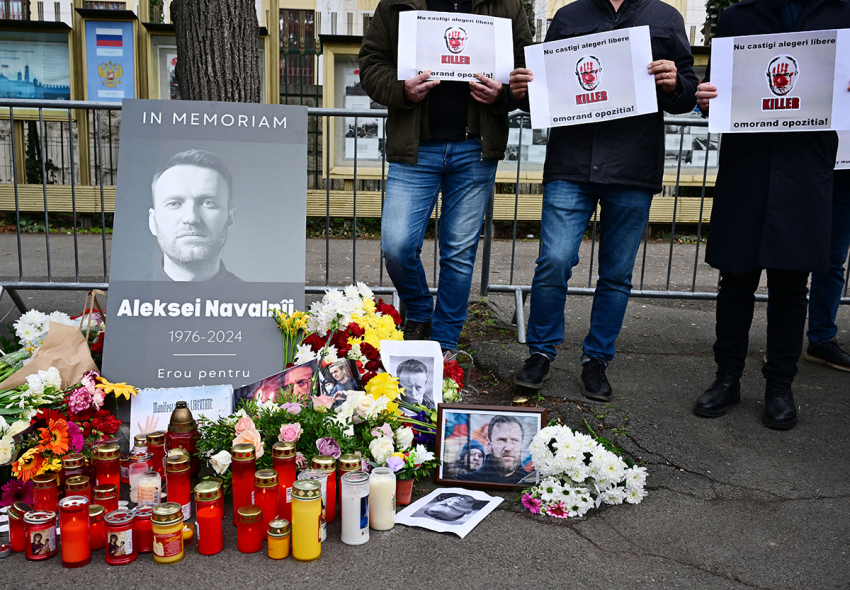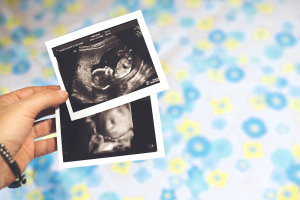Putin foe Alexei Navalny leaned on Christian faith before death

"We don't realise how strong we actually are. The only thing necessary for the triumph of evil is for good people to do nothing."
These are the words of Alexei Navalny, one of Russia's most well-known opposition politicians of recent times, who is reported to have died in a penal colony last week.
The circumstances of his death are uncertain and his family are yet to see his body. He was serving 19 years imprisonment on charges of extremism — widely and internationally considered to be politically motivated for his vocal criticism of Vladimir Putin's regime.
He was imprisoned in the IK-3 penal colony in the Arctic Circle, where temperatures go as low as -20 degrees and where the prison discipline is known to be brutal. In 2022, he spent nearly 300 days in solitary confinement.
Navalny gained prominence as a politician who vigorously exposed corruption in Russian politics. He was, for a while, an embarrassing thorn in the side of the Putin regime until he and his team gave evidence of the personal wealth of Putin and his closest allies. He was from then on viewed as a serious threat to Putin's power as many young followers responded to his activism, questioning the viability of the 2012 elections and taking to the streets in protest. Eventually, his campaign was outlawed and he was charged as an extremist.
Navalny was admired for his humor and sarcasm throughout immense suffering — even passing witty messages from prison to his lawyers full of his dark sense of humor.
His courage is also undeniable. He chose to return to Russia from Germany after a close run attempt on his life with the deadly Novichok nerve agent, later used in the Salisbury poisonings on another Russian dissident. He returned to Russia in the full knowledge that he would be arrested upon landing — separated from his family and imprisoned with no guarantee for his safety. But as The Times obituary put it, "He knew that Russians admire the uncompromising," so return he did.
A friend pointed out to me this weekend that in later life, Navalny stated publicly that he was a Christian. In his public statement during his 2021 trial, he is reported to have gone into some detail, explaining his Christian faith.
Like much of the activist movement, he had originally been — in his own words — "quite a militant atheist" and recognized that his new faith set him up for ridicule by his own political friends and allies.
He seems to speak of a weight lifted from his shoulders because of the clarity of the Bible. He said, "But now I am a believer, and it helps me a lot in my activities because everything becomes much, much easier ... because there is a book in which, in general, it is ... clearly written what action to take in every situation. It's not always easy to follow ... but I am actually trying ... as I said, its easier for me probably than for many others to engage in politics."
Navalny cited the Sermon on the Mount — "Blessed are those who hunger and thirst for righteousness, for they will be satisfied" — and said, "I've always thought that this commandment is more or less an instruction to activity."
I wouldn't want to put words in his mouth. I, of course, did not know Alexei Navalny, and these are only his reported words from a friendly publication. But in the clarity of the Bible's instruction, he appeared to have found both a spur to action and a "real kind of satisfaction" in doing what was required of him.
In the courageous example of Alexei Navalny, what can Western Christians learn?
In our relative comfort, can we understand the peace he had in following his conviction and boldly stating where those convictions came from, even though it both put him at odds with the authorities who opposed him and even brought criticism and incredulity from his own allies? Imagine what it must have taken to board that flight back to Russia, trading in his freedom and family life for an uncertain future in a penal colony.
Navalny shows a lesson in persistence and perspective too. He did not see the fall of Putin's regime in his lifetime, yet he was still prepared to fight with whatever he had, even if it was with letters to his lawyers from a freezing prison cell. Many of us in politics may not live to see the grave injustices in our context ended for good. Are we still prepared to act?
To end, let's remember the words of Psalm 2: "Why do the nations rage, and the peoples plot in vain? The kings of the Earth take their stand and the rulers conspire together against the Lord and his anointed one. ...
"So now kings be wise; receive instruction, you judges of the Earth. Serve the Lord with reverential awe and rejoice with trembling. Pay homage to the Son or he will be angry and you will perish in your rebellion, for his anger may ignite in a moment. Blessed are all who take refuge in him."
Like Navalny, can we rest in the sure knowledge of God's sovereignty even amidst awful circumstances, while still resolving to hunger and thirst for righteousness wherever God has placed us and with whatever God has put in our hands?
This article was originally published by Christian Today.



























